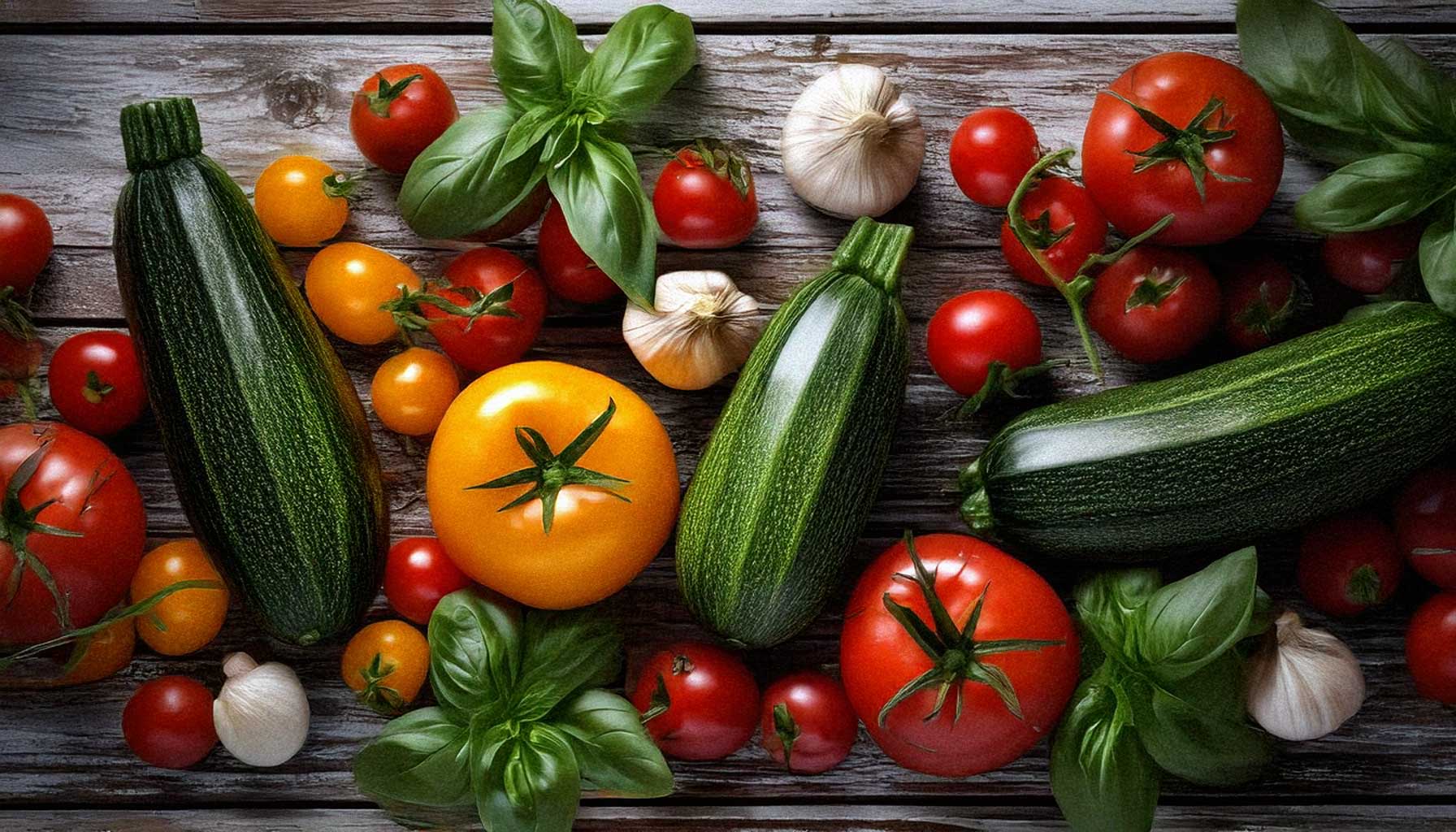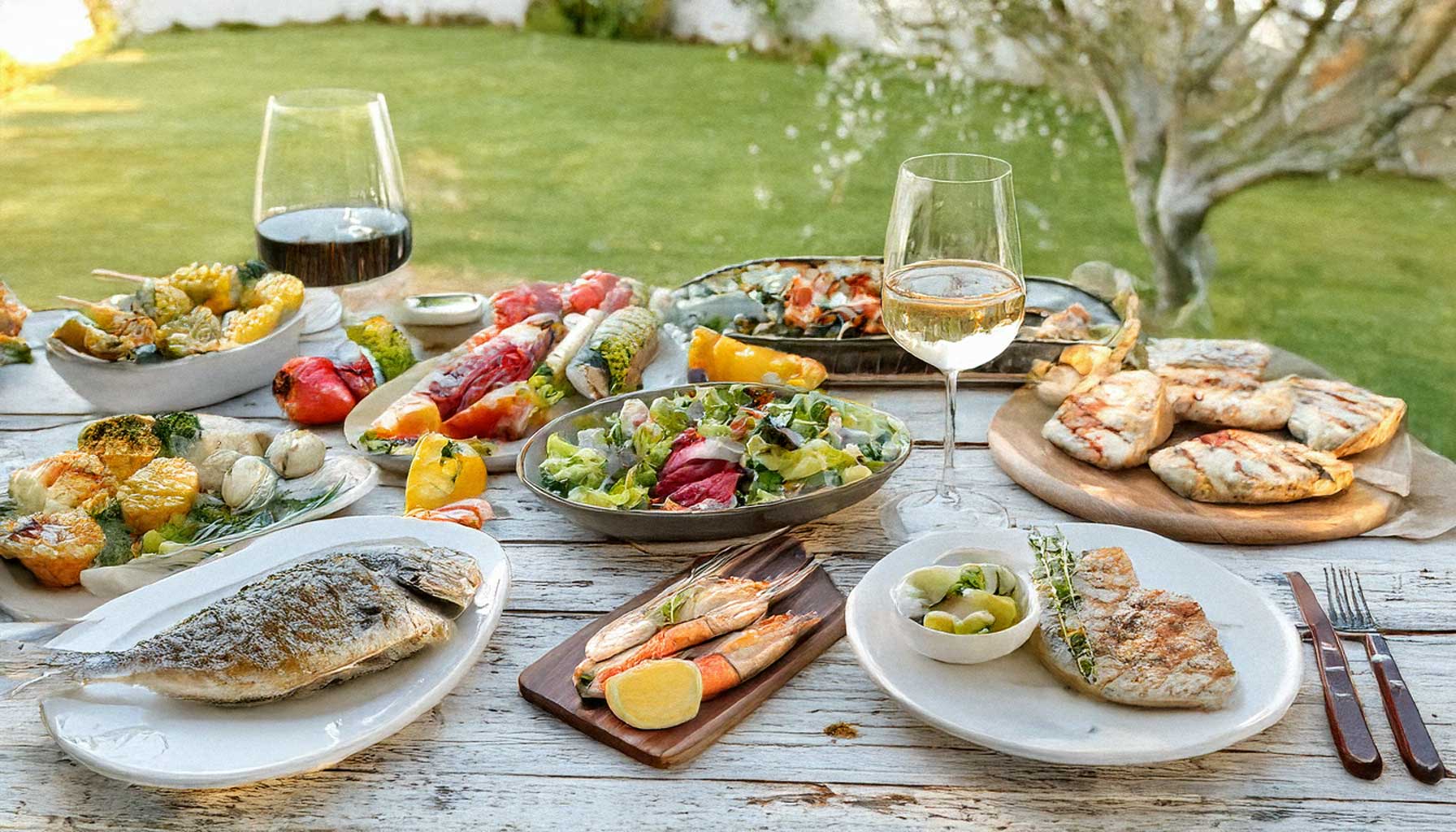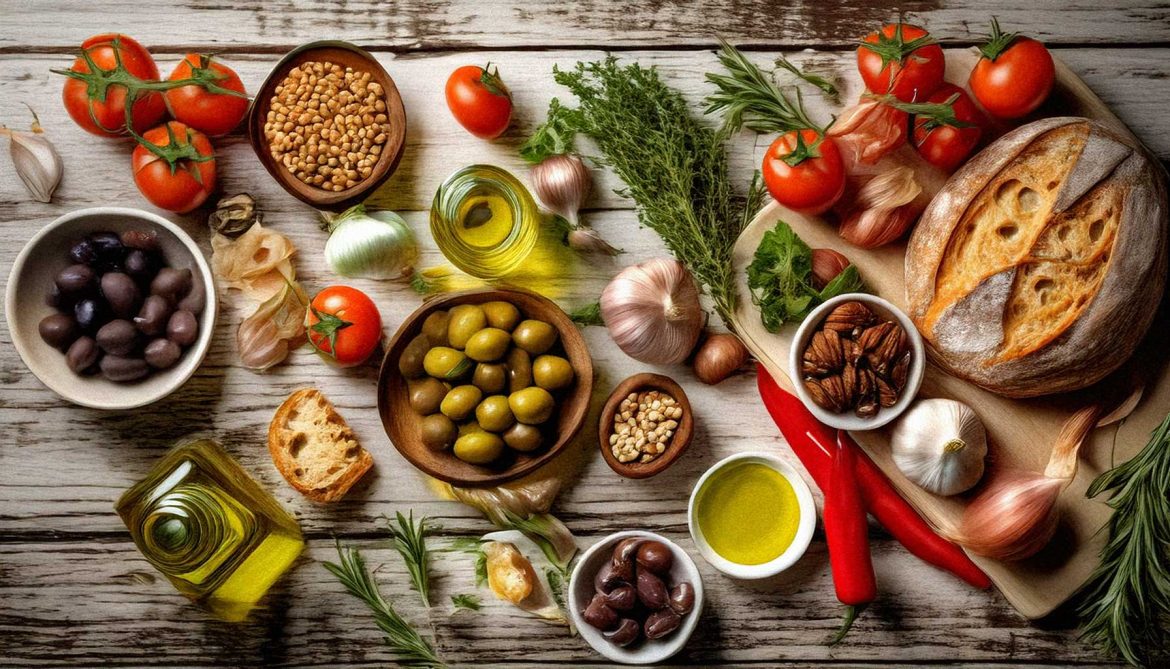The Mediterranean Diet has been gaining immense popularity worldwide, and for good reason! It’s not just a diet—it’s a lifestyle that emphasizes balance, flavor, and health. With its roots in the traditional eating habits of countries bordering the Mediterranean Sea, this approach combines wholesome, natural ingredients with mindful eating practices.
In this blog, I’ll guide you through the Mediterranean Diet, its benefits, and practical tips to integrate it into your daily life. Plus, we’ll explore delicious recipe ideas that make eating healthy an absolute joy.
What Is the Mediterranean Diet?
At its core, the Mediterranean Diet focuses on plant-based foods such as fruits, vegetables, whole grains, nuts, and seeds. Olive oil is the primary source of fat, while dairy, fish, and poultry are consumed in moderation. Red meat and sugary treats? They’re saved for special occasions.
One of the defining aspects is its communal style of eating—sharing meals with family and friends, savoring each bite, and appreciating food as more than just fuel.
Key Components
- Fresh fruits and vegetables
- Legumes, nuts, and seeds
- Whole grains
- Healthy fats (mainly olive oil)
- Moderate portions of fish, dairy, and poultry
- Occasional red wine
- Herbs and spices for flavor
Health Benefits of the Mediterranean Diet
The Mediterranean Diet is not just delicious but also scientifically proven to improve overall health. Here are some of its standout benefits:
| Health Aspect | Benefits |
|---|---|
| Heart Health | Reduces the risk of cardiovascular diseases due to its rich use of healthy fats and low saturated fats. |
| Weight Management | Helps in maintaining a healthy weight through balanced, nutrient-dense meals. |
| Brain Function | Linked to improved cognitive function and reduced risk of Alzheimer’s disease. |
| Longevity | Promotes a longer, healthier life with its focus on natural, unprocessed foods. |
“Let food be thy medicine and medicine be thy food.” – Hippocrates
How to Transition to a Mediterranean Lifestyle
Transitioning to the Mediterranean Diet doesn’t have to happen overnight. It’s about making small, sustainable changes to your eating habits. Here’s how you can start:
1. Swap Your Fats
Replace butter and processed oils with extra virgin olive oil. It’s perfect for drizzling over salads, sautéing vegetables, or even baking!
2. Add More Vegetables
Make vegetables the star of your meals. Think roasted eggplant, grilled zucchini, or a hearty Greek salad with tomatoes, cucumbers, and olives.
3. Choose Whole Grains
Swap refined grains for whole grains like quinoa, farro, and whole-wheat bread. They’re packed with nutrients and keep you full longer.
4. Snack Smart
Snack on nuts, seeds, or fresh fruit instead of processed chips or candy. A handful of almonds or a bowl of fresh berries can be both satisfying and nutritious.
5. Prioritize Fish
Incorporate fatty fish like salmon, mackerel, and sardines into your diet at least twice a week. They’re rich in omega-3 fatty acids, which are essential for heart health.

Easy Mediterranean-Inspired Meals
Now that you know the basics, let’s talk about some quick and easy Mediterranean recipes to kickstart your journey.
Breakfast: Greek Yogurt Bowl
- Base: Greek yogurt
- Toppings: Fresh fruits, honey, and a sprinkle of nuts
- Optional: Add a dash of cinnamon for extra flavor
This high-protein breakfast will keep you energized all morning!
Lunch: Mediterranean Grain Bowl
- Base: Quinoa or farro
- Toppings: Cherry tomatoes, cucumbers, olives, feta cheese, and grilled chicken
- Dressing: Lemon juice, olive oil, and oregano
A perfect balance of nutrients and flavors for your midday meal.
Dinner: Baked Salmon with Vegetables
- Salmon fillet brushed with olive oil, lemon juice, and garlic
- Roasted vegetables like zucchini, bell peppers, and asparagus
- Side: Whole-grain bread or brown rice
This dish is as nutritious as it is delicious.
“Good food is the foundation of genuine happiness.” – Auguste Escoffier
The Mediterranean Diet and Sustainability
One of the less-talked-about benefits of the Mediterranean Diet is its sustainability. By focusing on plant-based foods and reducing reliance on red meat, this lifestyle has a significantly smaller environmental footprint compared to other diets.
Why It’s Eco-Friendly
- Encourages seasonal and locally sourced produce
- Relies heavily on plant-based ingredients
- Reduces food waste by promoting simple, versatile recipes
- Minimizes carbon emissions from animal agriculture
Incorporating these principles into your eating habits not only benefits your health but also contributes to a healthier planet. It’s a win-win!

Embracing the Mediterranean Culture
The Mediterranean Diet isn’t just about food—it’s deeply rooted in a lifestyle that values connection, enjoyment, and simplicity. Here’s how you can embrace the cultural aspects:
1. Share Meals with Loved Ones
Eating together fosters strong relationships and makes meals more enjoyable. Gather around the table with friends or family, and savor the moment.
2. Take Your Time
Slow down and truly enjoy your food. The Mediterranean lifestyle encourages mindful eating, which can improve digestion and help you appreciate the flavors of your meal.
3. Stay Active
Physical activity is an integral part of the Mediterranean lifestyle. This doesn’t mean you have to hit the gym—walking, gardening, or dancing are all great ways to stay active.
4. Celebrate Simplicity
You don’t need elaborate recipes to enjoy Mediterranean food. A simple tomato salad with fresh basil and olive oil can be just as delightful as a gourmet dish.
“The simplicity of the Mediterranean lifestyle teaches us that less is often more.”
Is the Mediterranean Diet Right for You?
The Mediterranean Diet is not a strict regimen; it’s a flexible and enjoyable approach to eating that prioritizes health and happiness. Whether you’re looking to improve your well-being, support sustainability, or simply try new flavors, this lifestyle is worth exploring.
Start small—add more vegetables to your plate, swap your cooking oil for olive oil, and enjoy meals with the people you love. Over time, these small changes will become second nature, and you’ll find yourself thriving on the Mediterranean way of life.

What’s Your Take?
Have you tried the Mediterranean Diet? What are your favorite recipes or tips for embracing this lifestyle? Share your experiences in the comments below—we’d love to hear from you!



